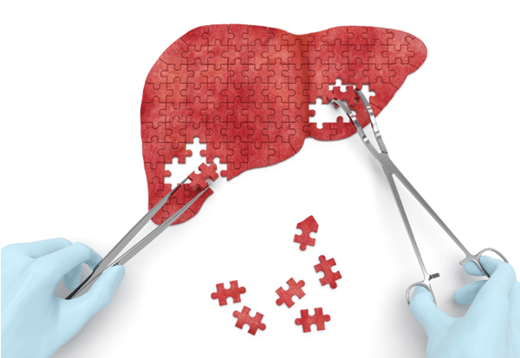The human liver is situated on the right side of the abdomen. It is one of the most significant and essential organs in the body under the rib cage. It is one of the vital and crucial organs for survival. The liver performs many functions in the body. By some estimates, it does more than 800 functions in the body.
It produces the necessary biochemicals responsible for digesting food and driving toxic substances out of the body. However, several diseases can occur to a liver if it’s not taken care of properly. A few of these are genetic, but other than inherited liver problems, the rest are caused by various factors.
Viruses, infections, alcoholism, and obesity can all cause damage to the liver, as well as scarring and cirrhosis. Cirrhosis and long-term damage to the liver can result in liver failure, which is a life-threatening condition. It can be avoided by seeking early treatment from a liver specialist in Mumbai, which aids in the healing of the liver.
Vital Functions of the Liver
1. Helps in food digestion
2. Maintain blood sugar level
3. Produces blood clotting factors
4. Breaks down many drugs and poisons
5. Help body resist infections by making proteins and immune factors
What can damage the Liver?
Liver damage can occur suddenly (acute) or can happen over a prolonged period (chronic). Most of the patients have a chronic form of liver disease.
1. Acute Liver Failure
- Severe Viral Infections (Hepatitis A or B)
- Rat Poisoning (Yellow Phosphorus)
- Excessive ingestion of Paracetamol, some herbal drugs, or Chinese medication
2. Chronic Liver Failure
- Excessive alcohol intake
- Viral infections like Hepatitis B and C
- NASH (fatty liver due to obesity, long term diabetes, high cholesterol, hypertension)
- Various autoimmune disease
3. Pediatric Population
- Biliary atresia and some other metabolic disorders
Symptoms of liver disease
In Early Stage
- Jaundice (yellow discoloration of eyes and skin)
- Dark-colored urine
- Black colored stools
- Itching
- Weight loss, loss of appetite, weakness
- Easy bruising and bleeding tendency
In Advanced Stage
- Swelling of limbs (edema)
- Water accumulation in the abdomen (ascites)
- Blood in vomitus
- Mental confusion and forgetfulness (Encephalopathy)
- Change in sleeping habits
- Frequent infections
- Kidney and other organ failures
Diagnosis of Liver disease
- Liver Function Test
- Viral serology (Hepatitis B, C, HIV)
- Liver Elastography
- Liver Imaging (Ultrasound Doppler, Triple phase CT scan, MRI liver)
Treatment for Liver Disease
Liver treatment is particular to the diagnosis and condition. While some liver problems are treated with medications, some liver problems are treated with lifestyle changes. These changes may include zero alcohol consumption, weight loss, or a change in the diet. During this period, the liver specialist may closely monitor the patient’s liver function. Liver problems such as liver failure may require surgery or a liver transplant.
Lifestyle changes help to improve liver health. Once diagnosed, the liver specialist may ask the patient to quit alcohol or avoid particular red meat, trans fats, processed carbohydrates, and high-fructose fat. Lifestyle changes also include a moderate-intensity exercise of 30 to 60 minutes around twice or thrice a week. Obese patients may require to shed 500 to 1,000 calories daily.
The liver specialist may ask the patient to avoid some dietary or herbal supplements to reduce scarring. It is essential to discuss the potential risks before making any lifestyle or nutritional changes with the liver specialist.
If you’re looking for the best liver treatment in Mumbai. Please book an appointment with an experienced liver specialist, Dr. Gaurav Gupta

